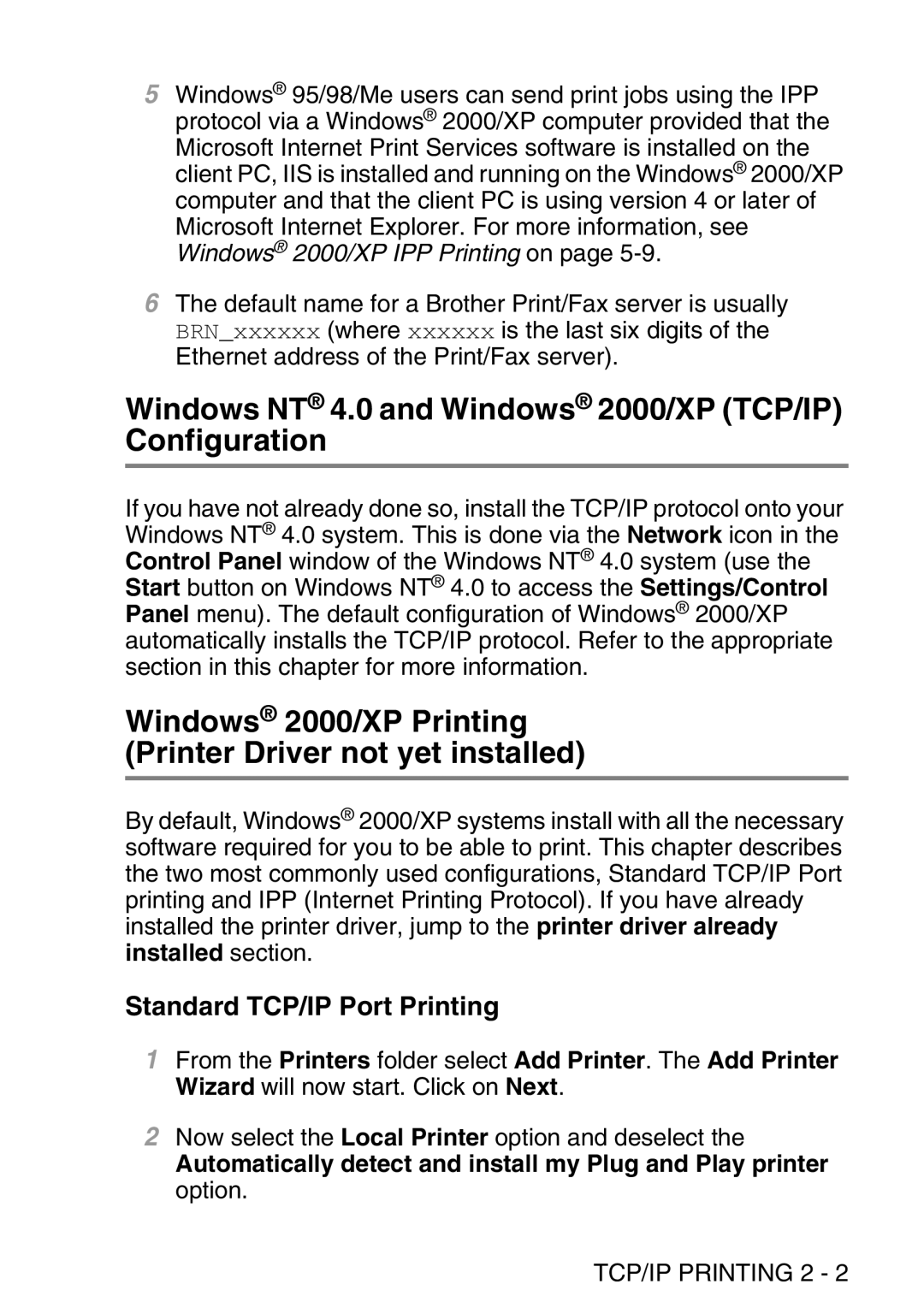
5Windows® 95/98/Me users can send print jobs using the IPP protocol via a Windows® 2000/XP computer provided that the
Microsoft Internet Print Services software is installed on the client PC, IIS is installed and running on the Windows® 2000/XP computer and that the client PC is using version 4 or later of
Microsoft Internet Explorer. For more information, see Windows® 2000/XP IPP Printing on page
6The default name for a Brother Print/Fax server is usually BRN_xxxxxx (where xxxxxx is the last six digits of the Ethernet address of the Print/Fax server).
Windows NT® 4.0 and Windows® 2000/XP (TCP/IP) Configuration
If you have not already done so, install the TCP/IP protocol onto your Windows NT® 4.0 system. This is done via the Network icon in the Control Panel window of the Windows NT® 4.0 system (use the Start button on Windows NT® 4.0 to access the Settings/Control Panel menu). The default configuration of Windows® 2000/XP automatically installs the TCP/IP protocol. Refer to the appropriate section in this chapter for more information.
Windows® 2000/XP Printing (Printer Driver not yet installed)
By default, Windows® 2000/XP systems install with all the necessary software required for you to be able to print. This chapter describes the two most commonly used configurations, Standard TCP/IP Port printing and IPP (Internet Printing Protocol). If you have already installed the printer driver, jump to the printer driver already installed section.
Standard TCP/IP Port Printing
1From the Printers folder select Add Printer. The Add Printer Wizard will now start. Click on Next.
2Now select the Local Printer option and deselect the
Automatically detect and install my Plug and Play printer option.
